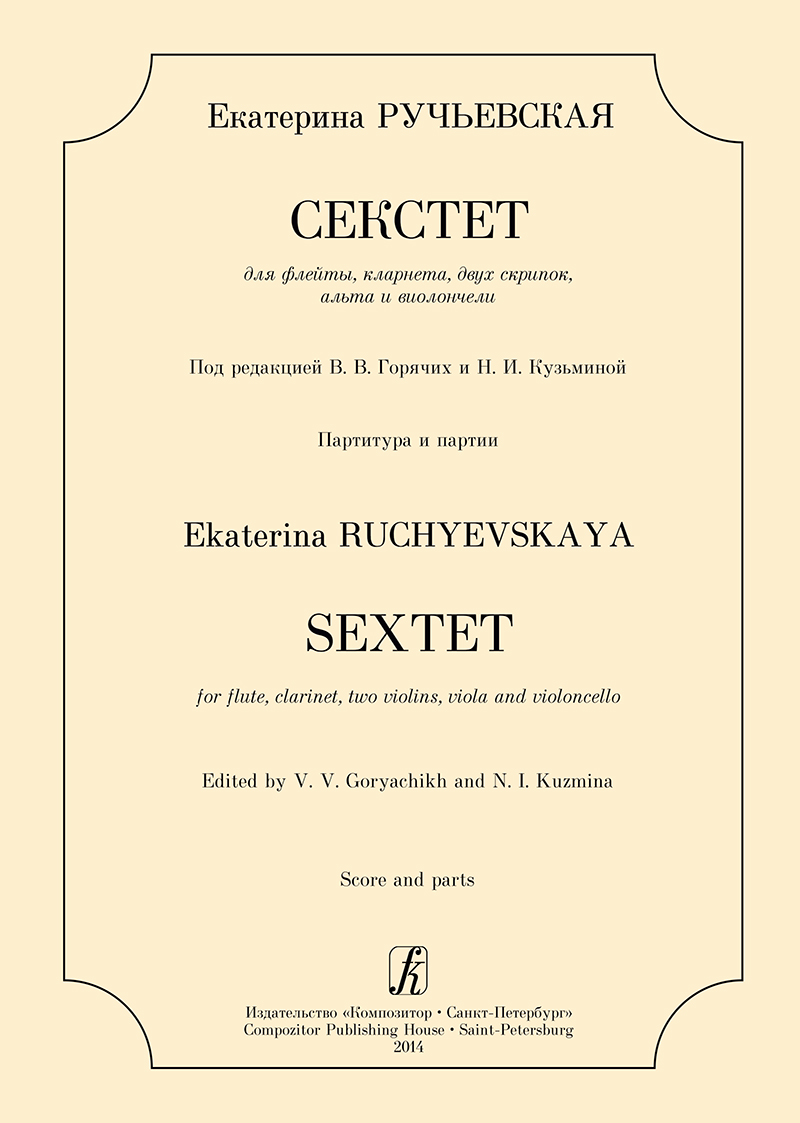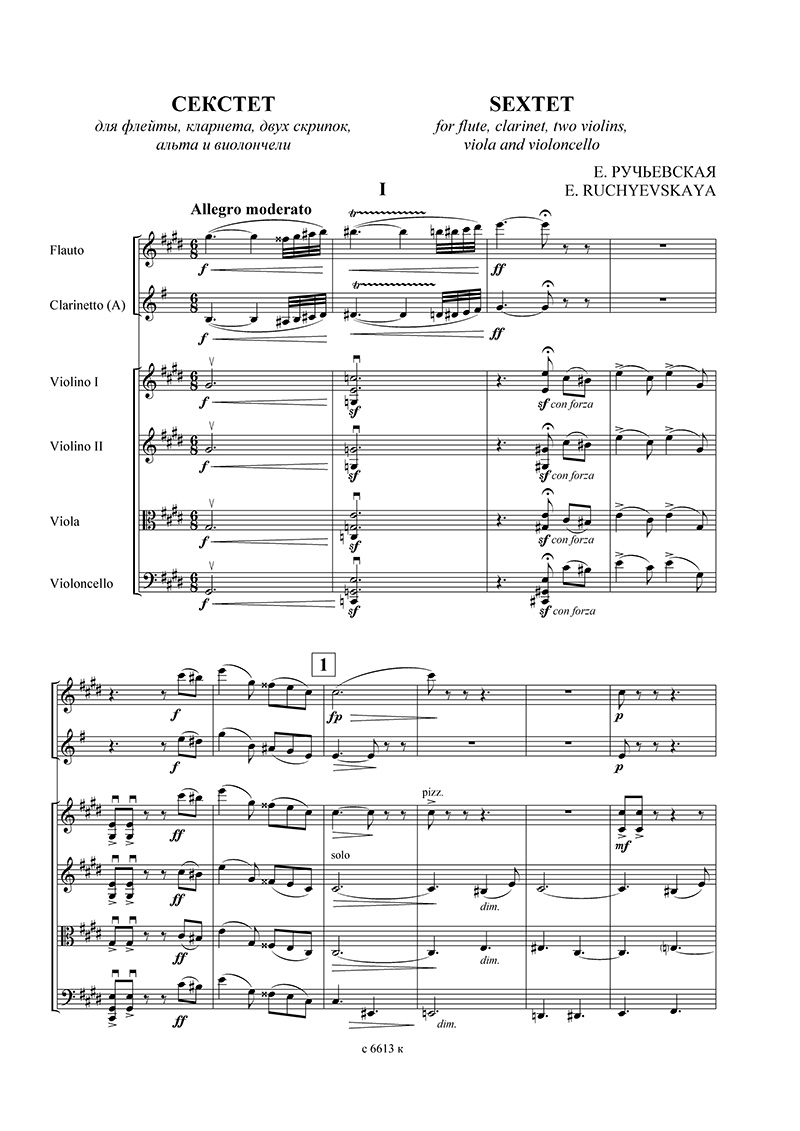
Ruchyevskaya Ye. Sextet for flute, clarinet, two violins, viola and violoncello. Score and parts
- Author:
- Ruchyevskaya Ye.
- Author (full):
- Ekaterina Ruchyevskaya
- Title (full):
- Sextet for flute, clarinet, two violins, viola and violoncello. Edited by N. I. Kuzmina and V. V. Goryachikh. Score and parts
- Number of pages:
- 76+114
The Sextet for flute, clarinet, two violins, viola and violoncello was composed in 1948. At that time Ekaterina Aleksandrovna was a fourth year student of the conservatory and one can suppose that the Sextet had to become her yearly certifying composition. However, in the music of the Sextet there are almost no apparent unskilled features. They can be noticed perhaps in the insufficient adjustment of performance indications and in different slips. The main traits, however, — striking thematic material, its intense development, originality of the music form and dramaturgy, composition plan — produce an impression of the carefulness, seriousness and … maturity. The maturity is in the spirit proper of composition, which now is perceived as one of the artistic documents of that fearsome epoch. It symbolizes the destiny of the girl having lost during the terrible years of repressions first stepfather (December 1937) and then father (January 1938). As a daughter of the person subject to repression she was expelled from the ten-year school under the Leningrad conservatory, gone through suffering and death of close people and still survived in the hell of blockade, got to know so much that would be enough for several lives. In music of the Sextet you can distinctly feel the time proper — cruel and simultanoesly heroic, and personality — undefeated, capable of withstanding the evil even alone, to think, feel, strive for the sublime.
The preserved music materials of the Sextet consist of three movements: Allegro moderato, Presto and Lento. Manuscript of the finale and even sketches thereof are not preserved, so it is impossible to say, whether it was composed or not. Neither there is any information about the performance of the Sextet. Let us emphasize once again: in music of the Sextet you can find no signs of creative failure, secondary character of the material (this could have been a reason of the impossibility or undesirability of finishing the work). The music is vivid, self-contained and catchy. Just the beginning of the Allegro can be considered as a great success for the young author — it is characterized by acute conflicts, dramatic qualities with the striking intonation of gestures, of the resolute word: volitional impulse immediately captivates the attention of listener. In the dramaturgy of the first movement especially distinguished is the moment of tragic break (at the joint of development and recapitulation), when the main theme assuming heroic traits and almost rejoicing suddenly gets stuck, spends its force and turns out to be wiped off by merciless octave unisons, first of string and then also of all six instruments (figures 24–28). And as consequence, in the recapitulation lyrical secondary theme sounds especially moving, consoling and the final theme in its sense becomes a low coda.
- Author
- Ruchyevskaya Ye.
- Author (full)
- Ekaterina Ruchyevskaya
- Title (full)
- Sextet for flute, clarinet, two violins, viola and violoncello. Edited by N. I. Kuzmina and V. V. Goryachikh. Score and parts
- Number of pages
- 76+114

